Where are they now? PhD bakers catch-up

Each year, OU PhD students have the chance to make a cake that represents their studies for the annual ‘Bake Your Research’ competition.
Run by the Open University Graduate School since 2018, entrants are also judged on how good their cakes look and taste – going head-to-head with other departments in the hopes of being crowned Star Baker. Having won first prize for the past two years, it could be said WELS really knows its baking!
But what happens after the oven cools and the crumbs are swept away? We caught up with previous contestants to see where they, and their research, are now.
Robert Taylor – 2021 competition
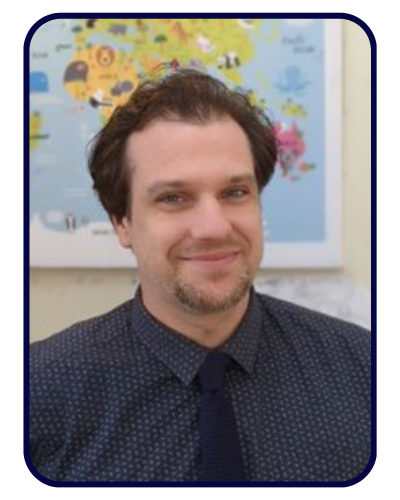 “I made an apple-spice ‘house’ cake to represent my research in home education. I baked it with my children who love cooking, and the chance to work together matched my interests in home education and developing student voices.
“I made an apple-spice ‘house’ cake to represent my research in home education. I baked it with my children who love cooking, and the chance to work together matched my interests in home education and developing student voices.
“Home education is when children learn outside of the school system, often with parents or tutors. I am researching how home-educated students make the transition to University. Previous research in this area often prioritised the views of parents or professionals, so I want the students’ voices to be heard in my research through qualitative case studies.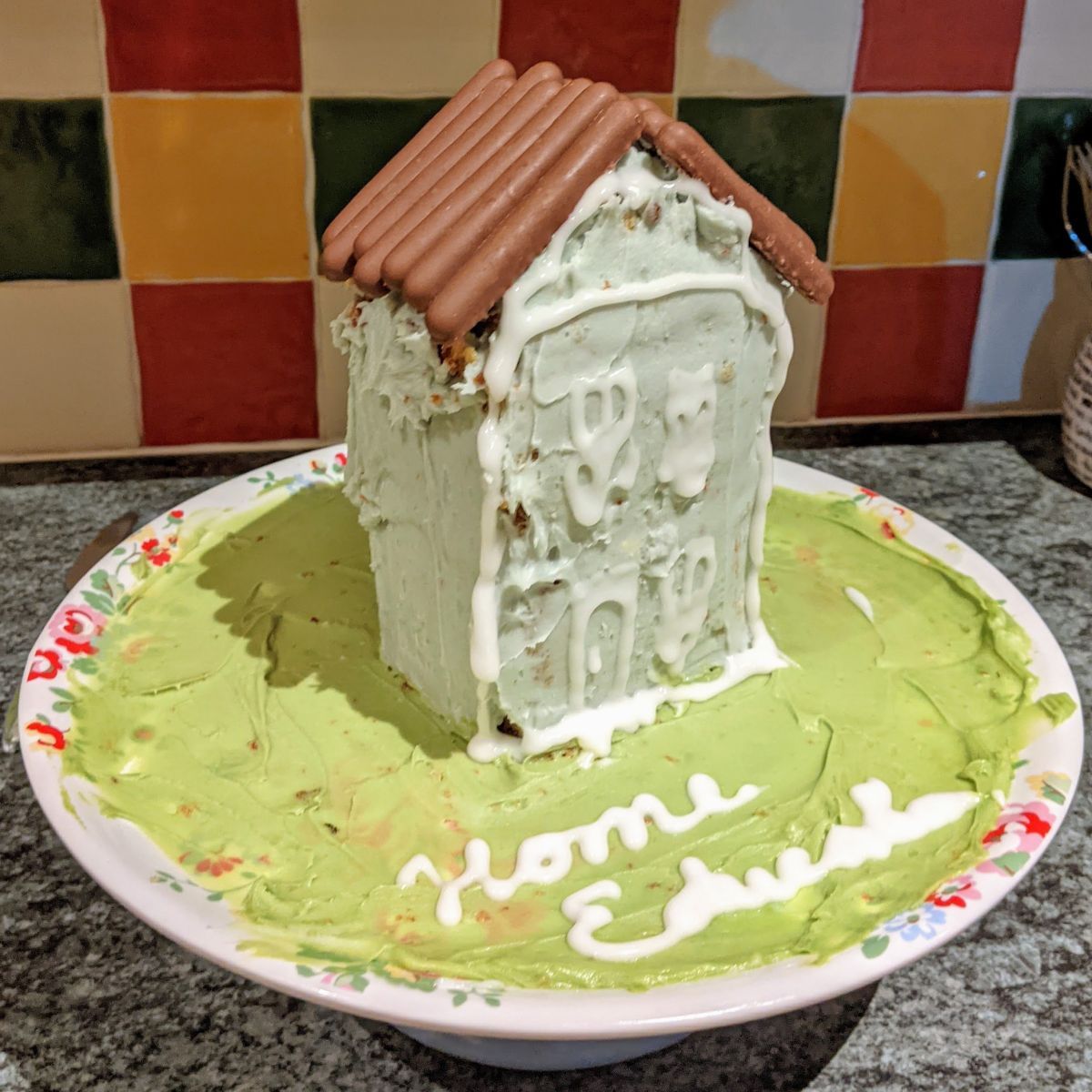
“I chose the OU because of the lecturers’ expertise and my studies can fit around my career as an alternative-provision teacher and home-educating father. So far, I have enjoyed attending conferences, round tables and residential training. The OU is especially apposite because of its popularity with home-educated students and so came highly recommended.
“I am now in the second year of my professional doctorate. In 2022, I wrote my literature review and am currently working on the methods section ready for my upgrade and fieldwork. I’m looking forward to sharing my research findings with the OU and home-educating families. I hope researching home education from the students’ perspective will support young people and families with further information to make informed choices about their careers and studies.”
Anna Madeley – 2021 and 2020 competitions
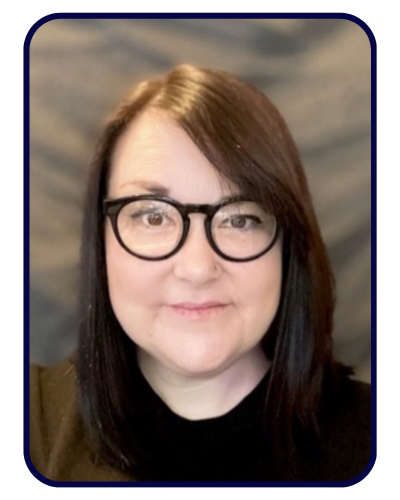 “My studies explore the social processes and experiences of making non-normative choices in pregnancy. That includes desiring care outside of guidelines or medical recommendations, withholding consent to interventions, or rejecting cultural, social or familial norms.
“My studies explore the social processes and experiences of making non-normative choices in pregnancy. That includes desiring care outside of guidelines or medical recommendations, withholding consent to interventions, or rejecting cultural, social or familial norms.
“I baked a gingerbread house for the 2021 competition, choosing ginger – a traditional morning sickness remedy – as a metaphor for the expectations applied to women in pregnancy. My data demonstrates enormous conflict in relationships between healthcare providers and women who make choices in their pregnancy that may be perceived as challenging to the system.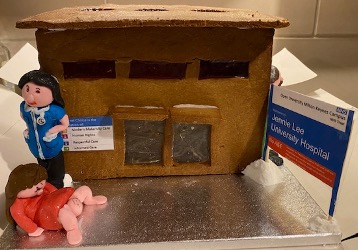
"How women then go on to navigate this remains uniquely individual, with complex and sophisticated elements of planning and relationship building with communities largely outside of the institution. Concerning examples of escalating resistance and coercion from the maternity community illustrate how women can feel abandoned, threatened and bullied into compliance when pushing against societal and institutional norms.
“I was privileged to present my emerging findings at an international labour and birth conference in Denmark in 2022, and the findings of the meta-ethnographic review of the literature have been published in an international peer-reviewed journal. Data collection is now complete for my grounded theory study, and I’m in the PhD write-up phase.
“I hope by sharing this study, I can demonstrate that choice and personalised care in the presence of non-normative decision-making in maternity care is largely unachievable, requiring a shift in thinking at both national and local levels.”
Annie Storkey – 2020 competition
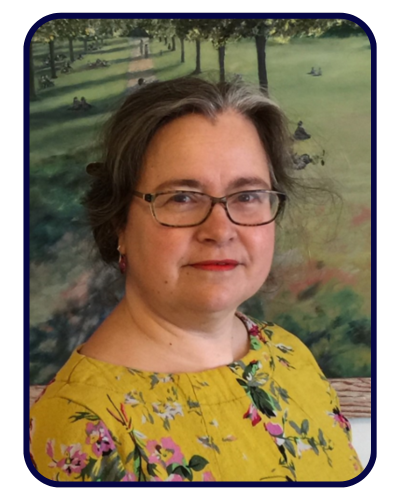 “My research title is ‘Can proactive motivational support facilitate and empower online undergraduate students with mental health challenges to become independent learners?’. This question responds to research stating that OU students are more likely to disclose mental health challenges than students at any other UK University, but less likely to complete and pass their modules. This research was important to me as it reflected my experience as an Associate Lecturer, but also my personal experience as a student. I dropped out of my first degree when I developed bipolar disorder.
“My research title is ‘Can proactive motivational support facilitate and empower online undergraduate students with mental health challenges to become independent learners?’. This question responds to research stating that OU students are more likely to disclose mental health challenges than students at any other UK University, but less likely to complete and pass their modules. This research was important to me as it reflected my experience as an Associate Lecturer, but also my personal experience as a student. I dropped out of my first degree when I developed bipolar disorder.
“My ‘Bake Your Research’ entry was a Victoria sponge hidden underneath a circuit-board design symbolising the online environment. Inside, rainbow layers represented the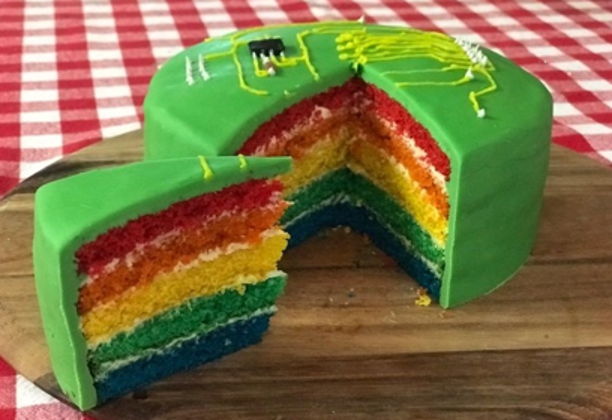 empowerment of people with mental health challenges within that environment. The rainbow is a symbol of hope. Research into student mental health can present a negative picture yet that’s not the whole story; I may have dropped out of my undergraduate studies 25 years ago but here I am doing a doctorate.
empowerment of people with mental health challenges within that environment. The rainbow is a symbol of hope. Research into student mental health can present a negative picture yet that’s not the whole story; I may have dropped out of my undergraduate studies 25 years ago but here I am doing a doctorate.
“I am now in my final year and writing up my thesis. My research study has enabled my participants to share their experiences of studying, explain the challenges they face and explore the support they want from their tutor. But it has also demonstrated their own resilience in the face of difficulties and their expert knowledge on the student experience. My teaching practice has evolved throughout my research journey and continues to develop.”
Tom Witney – 2018 competition
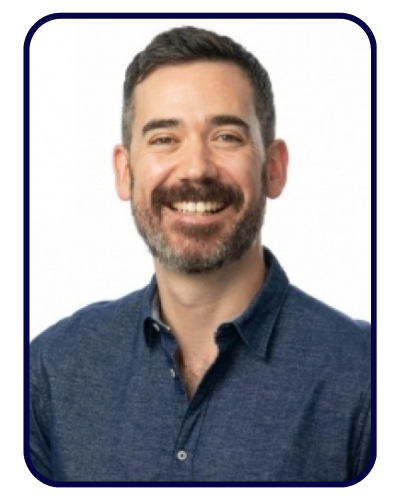 “My PhD research explored the everyday experiences of gay and bisexual men in mixed-HIV status relationships. It was a challenge to come up with a way to turn quite an abstract subject into a bake, but it got me thinking. In the end, I decided to make 30 white chocolate and matcha mini eclairs, representing the 30 men who took part in the study. I’d learnt to make choux pastry at a cookery class a few weeks before, so it was a chance to put what I’d learnt there into practice.
“My PhD research explored the everyday experiences of gay and bisexual men in mixed-HIV status relationships. It was a challenge to come up with a way to turn quite an abstract subject into a bake, but it got me thinking. In the end, I decided to make 30 white chocolate and matcha mini eclairs, representing the 30 men who took part in the study. I’d learnt to make choux pastry at a cookery class a few weeks before, so it was a chance to put what I’d learnt there into practice.
“I used food dye to colour the white-chocolate icing different colours to match the logo I’d devised for the study – the two colours representing different HIV statuses. Although blue and green perhaps weren’t the most appetising colours to use, at least they were eye-catching and gave me something to start a conversation about..jpg)
“Since completing my PhD in 2020, I’ve carried on in academic research and have had the chance to work on further studies about relationships and sexual health – something I’m hoping to continue.
"Outside of ‘Bake Your Research’, I had the opportunity to work with the OpenLearn team to create Time to look again at HIV and relationships, an animation about the findings of my original research. It’s a slightly more conventional way to communicate research compared to baking, and we dropped the blue/green colour scheme!”
See 2022’s ‘Bake Your Research’ entries from WELS researchers.
Find out more about OU research degrees.
Are you already an OU student?
Request your prospectus
Explore our qualifications and courses by requesting one of our prospectuses today.
Request prospectus